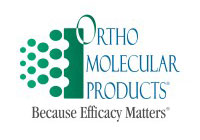Integrative Practitioner Digital Summit
THE MICROBIOME
Rethinking SIBO in the Microbiome Era
Elevated microorganism levels in the small intestine cause gas, bloating and intolerance to many foods (even probiotics). Such imbalances in the small intestinal ecosystem are due to several factors, including poor motility, food poisoning and reduction in key GI-supporting factors.
Diagnostics for small intestinal bacterial overgrowth (SIBO) are changing beyond just breath tests. Research has shown that cytolethal distending toxins (CDTs) from pathogenic bacteria can disrupt cytoskeletal tissues and cause immune responses. Antibodies against bacterial cytotoxins and cytoskeletal proteins are detected in the blood with high accuracy and reproducibility and have become a popular serum-based diagnostic tool for SIBO.
SIBO is challenging to treat, and the success of Rifaximin is short-lived with a high relapse rate. Among SIBO populations, research has shown that Bacillus-based probiotics are comparable to Rifaximin and have better outcomes than traditional probiotics. Besides having a much longer duration of activity in the intestines than traditional probiotics, Bacillus naturally germinates from its protective endospore form and becomes active within the small intestine, making it an ideal application for SIBO. Activated Bacillus strains use quorum sensing to gently fend off and break down non-resident species to support microbial balance.
Serum-derived bovine immunoglobulins (SBI) are also a popular choice for practitioners treating SIBO because of their binding capacity to pathogen-associated molecular patterns (including lipopolysaccharides and toxins released from unwanted species), helping prevent the consequent inflammation associated with endotoxin release and protect the intestinal lining.
Bacillus and SBI work synergistically to restore the gut terrain and should be considered a part of a complete SIBO protocol.
Educational session sponsored by Ortho Molecular


Speaker: Vincent M. Pedre, MD
Dr. Vincent M. Pedre is the medical director of Pedre Integrative Health, founder of Dr. Pedre Wellness, and a functional medicine-certified practitioner in private practice in New York City since 2004. He is also certified in yoga and medical acupuncture, as well as the Chief Medical Officer of United Naturals. As Spanish-speaking faculty for The Institute for Functional Medicine, Dr. Pedre has taught the AFMCP in Spanish in Lima, Peru, as well as an introduction to functional medicine in Mexico City. He has been a part of the team at the Lifestyle Matrix Resource Center as a Clinical Expert, serving the Pillars of GI Health Program since 2017. He believes the gut is the gateway to excellent health. As the bestselling author of Happy Gut—The Cleansing Program To Help You Lose Weight, Gain Energy and Eliminate Pain, he has helped thousands of people worldwide resolve digestive and gut-related health issues to regain their well-being.


















